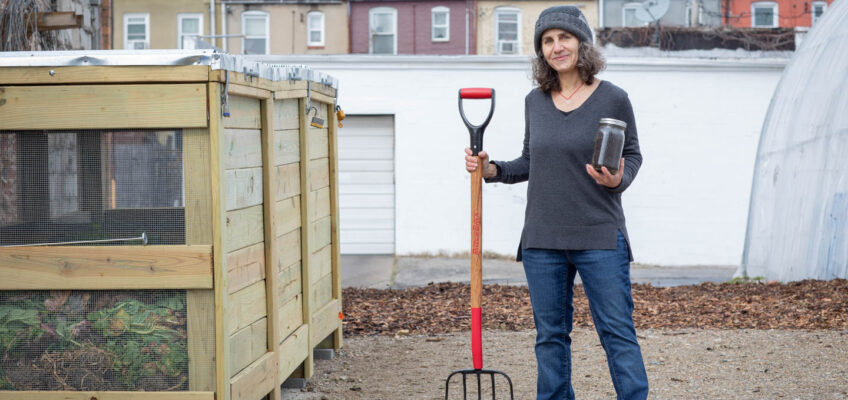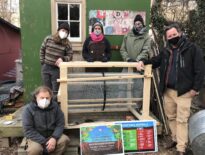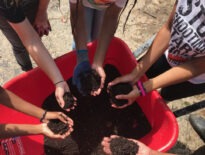In the News: Brenda Platt
December 8, 2020
Media Outlet: BioCycle

In BioCycle, ILSR’s Composting for Community Director Brenda Platt spoke with Molly Lindsay, Director of Operations at the Community Compost Company, about the business of community composting and the state of the industry in the U.S today. Platt starts by giving an overview of the number of community composters and the number of food scraps diverted from landfills through composting each week and highlighting the 198 community composters currently on ILSR’s Composting for Community map.
Platt then discusses the challenges that come with community composting, a model that focuses on establishing small-scale and decentralized composting systems rather than larger, industrial-scale facilities.
The top three challenges are market development and sale of compost products, lack of equipment designed for the community composting scale and insurance. Insurance has come up repeatedly — if you’re a bike hauler that has to have the same level of insurance as a trash hauler, you just can’t do it.
As for solutions, Platt directs readers to the multitude of resources that ILSR’s Composting for Community initiative has curated, including a series of webinars that ILSR will be offering that aim to address the top three challenges.
Lindsay and Platt also discuss gaining access to equipment for community-scaled composting and best practices for community composting. Platt urges people to:
Emphasize community benefits. For example, if you’re producing “black gold” to help grow local food, you’re addressing food insecurity. Or maybe you’re converting blighted sites to green space and improving neighborhoods. Community composters are so small scale that often they are benefiting the community.
Finally, they envision the future of the community composting movement in the next 5-10 years.
I think we will see more food waste reduction, food rescued to feed people as well as recycling into compost, because we have to. If we want to help mitigate climate disruption, we need to get carbon back in the soil… Local government will be absolutely critical for access to land, financing, education, and marketing, and also not competing directly against small-scale operators, but supporting this diverse infrastructure.
Photo via Miriam Doan.





